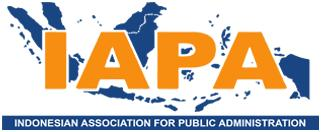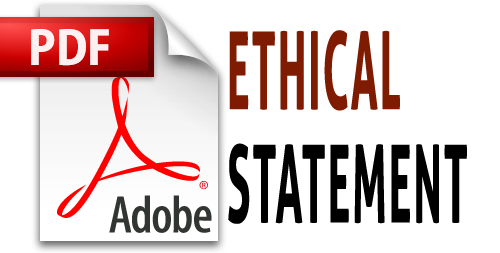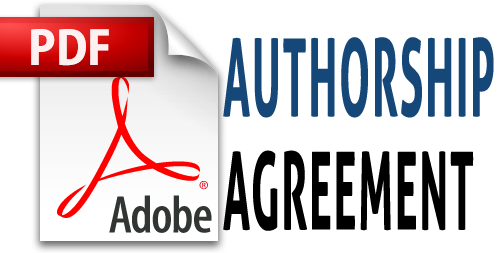Encouraging Employee Innovative Behavior in the Public Sector through Effective Leadership Styles: A Systematic Review
Abstrak
The innovative behavior of employees in the public sector is one of the essential aspects of efforts to improve the quality of public services. Leadership is a key factor that performs a significant role in encouraging public sector employees to engage in innovation activities. This research aims to explore leadership styles and characteristics that can facilitate employees' innovative behavior in public organizations. The study was carried out using a systematic literature review approach with the PRISMA framework. A total of 48 scientific articles were selected for in-depth review and analysis. The results of the analysis show that the transformational leadership style is the approach most widely discussed in the public sector context and is proven to be effective in encouraging employee innovative behavior. A deeper analysis found that leadership characteristics such as supporting innovation and creativity, inspiration and motivation, collaboration and empowerment, visionary thinking, and building good personal relationships were found to be closely related to the innovative behavior of organizational members. These findings make a significant contribution to the development of leadership literature in the public sector while offering practical guidance for public organizations in implementing effective leadership strategies to encourage innovation.
Kata Kunci
Teks Lengkap:
PDF (English)Referensi
Afsar, B., & Masood, M. (2018). Transformational Leadership, Creative Self-Efficacy, Trust in Supervisor, Uncertainty Avoidance, and Innovative Work Behavior of Nurses. Journal of Applied Behavioral Science, 54(1), 36–61. https://doi.org/10.1177/0021886317711891
Akıncı, G., Alpkan, L., Yıldız, B., & Karacay, G. (2022). The Link between Ambidextrous Leadership and Innovative Work Behavior in a Military Organization: The Moderating Role of Climate for Innovation. Sustainability (Switzerland), 14(22). https://doi.org/10.3390/su142215315
Almazrouei, S., Bani-Melhem, S., & Mohd Shamsudin, F. (2023). How having job impact leads to employee innovative behavior: a moderated mediation model of servant leadership and work meaningfulness. International Journal of Public Sector Management, 36(4–5), 382–403. https://doi.org/10.1108/IJPSM-11-2022-0254
Armstrong, M. (2009). Armstrong’s Handbook Of Management And Leadership: A Guide To Managing For Results (Second edition). Kogan Page.
Ashfaq, F., Abid, G., Ilyas, S., & Hasnain, A. (2021). How transformational leadership influences innovative behavior: the mediating role of psychological empowerment and proactivity of employees. Independent Journal of Management & Production, 12(1), 241–264. https://doi.org/10.14807/ijmp.v12i1.1162
Baafi, F., Ansong, A., Dogbey, K. E., & Owusu, N. O. (2021). Leadership and innovative work behaviour within Ghanaian metropolitan assemblies: mediating role of resource supply. International Journal of Public Sector Management, 34(7), 765–782. https://doi.org/10.1108/IJPSM-01-2021-0005
Bahagia, R., Daulay, R., Arianty, N., & Astuti, R. (2024). Transformational leadership, emotional intelligence, and innovative work behavior: Mediating roles of knowledge sharing at public hospitals in Indonesia. Problems and Perspectives in Management, 22(1), 103–114. https://doi.org/10.21511/ppm.22(1).2024.10
Bak, H. U., Jin, M. H., & McDonald, B. D. (2022). Unpacking the Transformational Leadership-Innovative Work Behavior Relationship: The Mediating Role of Psychological Capital. Public Performance and Management Review, 45(1), 80–105. https://doi.org/10.1080/15309576.2021.1939737
Bass, B. M., & Riggio, R. E. (2006). Transformational Leadership (Second Edition). Lawrence Erlbaum Associates.
Benmira, S., & Agboola, M. (2021). Evolution of leadership theory. In BMJ Leader (Vol. 5, Issue 1, pp. 3–5). BMJ Publishing Group. https://doi.org/10.1136/leader-2020-000296
Bernards, B. (2024). Cognitive Uncertainty and Employees’ Daily Innovative Work Behavior: The Moderating Role of Ambidextrous Leadership. Review of Public Personnel Administration. https://doi.org/10.1177/0734371X241233759
Brimhall, K. C. (2021). Are We Innovative? Increasing Perceptions of Nonprofit Innovation Through Leadership, Inclusion, and Commitment. Review of Public Personnel Administration, 41(1), 3–24. https://doi.org/10.1177/0734371X19857455
Brunetto, Y., Kominis, G., & Ashton-Sayers, J. (2024). Authentic leadership, psychological capital, acceptance of change, and innovative work behaviour in non-profit organisations. Australian Journal of Public Administration, 83(1), 69–87. https://doi.org/10.1111/1467-8500.12603
De Jong, J., & Den Hartog, D. (2010). Measuring innovative work behaviour. Creativity and Innovation Management, 19(1), 23–36. https://doi.org/10.1111/j.1467-8691.2010.00547.x
De Vries, H., Bekkers, V., & Tummers, L. (2016). Innovation in the public sector: A systematic review and future research agenda. Public Administration, 94(1), 146–166. https://doi.org/10.1111/padm.12209
Demirtas, O., & Karaca, M. (2020). A Handbook of Leadership Styles. Cambridge Scholars Publishing.
Frank, F. (2023). The Power of Humility in Leadership: Influencing as a Role Model. Routledge, Taylor & Francis.
Gelaidan, H. M., Al-Swidi, A. K., & Al-Hakimi, M. A. (2024). Servant and authentic leadership as drivers of innovative work behaviour: the moderating role of creative self-efficacy. European Journal of Innovation Management, 27(6), 1938–1966. https://doi.org/10.1108/EJIM-07-2022-0382
Gelaidan, H. M., Houtgraaf, G., & Al-kwifi, O. S. (2022). Creativity and innovation in rapidly developing Qatar: the impact of leadership and the mediation of psychological empowerment amidst rapid growth. International Journal of Public Sector Management, 35(3), 257–275. https://doi.org/10.1108/IJPSM-01-2021-0016
Günzel-Jensen, F., Hansen, J. R., Jakobsen, M. L. F., & Wulff, J. (2018). A Two-Pronged Approach? Combined Leadership Styles and Innovative Behavior. International Journal of Public Administration, 41(12), 957–970. https://doi.org/10.1080/01900692.2017.1303711
Habibie, M. A. El, Indrayani, I., Satriawan, B., & Dewi, N. P. (2024). The Influence of Transformational Leadership, Competence, Work Motivation and Organizational Culture on the Performance of RSCM Employees through Job Satisfaction as a Mediating Variable and Organizational Support as a Moderating Variable. Jurnal Manajemen Pelayanan Publik, 8(2), 665–682. https://doi.org/10.24198/jmpp.v8i2.55072
Hansen, J. A., & Pihl-Thingvad, S. (2019). Managing employee innovative behaviour through transformational and transactional leadership styles. Public Management Review, 21(6), 918–944. https://doi.org/10.1080/14719037.2018.1544272
Holbeche, L. (2022). Aligning Human Resources and Business Strategy (Third edition). Routledge Taylor & Francis.
Janssen, O. (2000). Job demands, perceptions of effort-reward fairness and innovative work behaviour. Journal of Occupational and Organizational Psychology, 73(3), 287–302. https://doi.org/10.1348/096317900167038
Karimi, S., Ahmadi Malek, F., Yaghoubi Farani, A., & Liobikienė, G. (2023). The Role of Transformational Leadership in Developing Innovative Work Behaviors: The Mediating Role of Employees’ Psychological Capital. Sustainability (Switzerland) , 15(2). https://doi.org/10.3390/su15021267
Kousina, E., Deligianni, I., & Voudouris, I. (2024). Entrepreneurial leadership and innovation in the public sector: The role of causal- and effectual-logic processes. Public Administration. https://doi.org/10.1111/padm.13022
Kousina, E., & Voudouris, I. (2023). The ambidextrous leadership-innovative work behavior relationship in the public sector: The mediating role of psychological ownership. Public Administration Review, 83(6), 1478–1495. https://doi.org/10.1111/puar.13650
Kouzes, J. M., & Posner, B. Z. (2023). The Leadership Challenge: How to Make Extraordinary Things Happen in Organizations (Seventh edition). John Wiley & Sons.
Kung, C. W., Uen, J. F., & Lin, S. C. (2020). Ambidextrous leadership and employee innovation in public museums. Chinese Management Studies, 14(4), 995–1014. https://doi.org/10.1108/CMS-05-2018-0523
Lewis, J. M., Ricard, L. M., & Klijn, E. H. (2018). How innovation drivers, networking and leadership shape public sector innovation capacity. International Review of Administrative Sciences, 84(2), 288–307. https://doi.org/10.1177/0020852317694085
Lim, J. Y., & Moon, K. K. (2022). Transformational leadership and employees’ helping and innovative behaviors: contextual influences of organizational justice. International Journal of Manpower, 43(4), 1033–1053. https://doi.org/10.1108/IJM-02-2020-0044
Masood, M., & Afsar, B. (2017). Transformational leadership and innovative work behavior among nursing staff. Nursing Inquiry, 24(4). https://doi.org/10.1111/nin.12188
Mengist, W., Soromessa, T., & Legese, G. (2020). Ecosystem services research in mountainous regions: A systematic literature review on current knowledge and research gaps. In Science of the Total Environment (Vol. 702). Elsevier B.V. https://doi.org/10.1016/j.scitotenv.2019.134581
Miao, Q., Newman, A., Schwarz, G., & Cooper, B. (2018). How Leadership and Public Service Motivation Enhance Innovative Behavior. Public Administration Review, 78(1), 71–81. https://doi.org/10.1111/puar.12839
Musenze, I. A., & Mayende, T. S. (2023). Ethical leadership (EL) and innovative work behavior (IWB) in public universities: examining the moderating role of perceived organizational support (POS). Management Research Review, 46(5), 682–701. https://doi.org/10.1108/MRR-12-2021-0858
Musenze, I. A., Mayende, T. S., Wanyana, M., & Kasango, J. (2024). Servant leadership and innovative work behavior: the role of innovation climate using evidence from the Ugandan local government sector. Journal of Management Development. https://doi.org/10.1108/JMD-10-2023-0316
Mutonyi, B. R., Slåtten, T., & Lien, G. (2020). Empowering leadership, work group cohesiveness, individual learning orientation and individual innovative behaviour in the public sector: empirical evidence from Norway. International Journal of Public Leadership, 16(2), 175–197. https://doi.org/10.1108/IJPL-07-2019-0045
Nguyen, N. T. H., Nguyen, D., Vo, N., & Tuan, L. T. (2023). Fostering Public Sector Employees’ Innovative Behavior: The Roles of Servant Leadership, Public Service Motivation, and Learning Goal Orientation. Administration and Society, 55(1), 30–63. https://doi.org/10.1177/00953997221100623
Nordin, W. N. A. W. M., & Kamil, N. L. M. (2023). Innovation Management in the Public Sector: How Leaders Oversee Employees’ Innovative Work Behaviour? In Corporate Management Ecosystem in Emerging Economies Global Perspectives (pp. 127–146). Springer International Publishing. https://doi.org/10.1007/978-3-031-41578-4_8
Northouse, P. G. (2016). Leadership: Theory and Practice (Seventh edition). SAGE Publications, Inc.
Nurung, J., Tamsah, H., & Hamsinah. (2021). Relationship between Leadership Quality and Service Innovation in Public Organizations: A Conceptual Framework. IOP Conference Series: Earth and Environmental Science, 921(1). https://doi.org/10.1088/1755-1315/921/1/012006
Nusair, N., Ababneh, R., & Bae, Y. K. (2012). The impact of transformational leadership style on innovation as perceived by public employees in jordan. International Journal of Commerce and Management, 22(3), 182–201. https://doi.org/10.1108/10569211211260283
OECD. (2015). The innovation imperative in the public sector: setting an agenda for action. OECD Publishing.
Ononye, U. H., & Maduemezia, I. (2024). KNOWLEDGE-ORIENTED LEADERSHIP, PSYCHOLOGICAL SAFETY, EMPLOYEE VOICE, AND INNOVATION. Informing Science, 27. https://doi.org/10.28945/5244
Park, N., Cho, M., & Lee, J. W. (2021). Building a culture of innovation: How do agency leadership and management systems promote innovative activities within the government? Australian Journal of Public Administration, 80(3), 453–473. https://doi.org/10.1111/1467-8500.12474
Park, S., & Jo, S. J. (2018). The impact of proactivity, leader-member exchange, and climate for innovation on innovative behavior in the Korean government sector. Leadership and Organization Development Journal, 39(1), 130–149. https://doi.org/10.1108/LODJ-09-2016-0216
Patterson, C. E. P. (2010). Management Briefs: Management and Leadership Theory Made Simple. Ventus Publishing. https://www.researchgate.net/publication/309699666
Peng, Y. P. (2020). Relationship between job involvement, leader-member exchange, and innovative behavior of public librarians. Journal of Librarianship and Information Science, 52(2), 441–450. https://doi.org/10.1177/0961000618810378
Pham, T. P. T., Van Nguyen, T., Van Nguyen, P., & Ahmed, Z. U. (2024). The pathways to innovative work behavior and job performance: Exploring the role of public service motivation, transformational leadership, and person-organization fit in Vietnam’s public sector. Journal of Open Innovation: Technology, Market, and Complexity, 10(3). https://doi.org/10.1016/j.joitmc.2024.100315
PRISMA. (2024). PRISMA Flow Diagram. Retrieved November 2024, from Https://Www.Prisma-Statement.Org/Prisma-2020-Flow-Diagram.
Pučėtaitė, R. (2014). Stimulating Organizational Innovativeness through Ethical Leadership Practices: The Mediating Role of Organizational Trust. Procedia - Social and Behavioral Sciences, 156, 231–235. https://doi.org/10.1016/j.sbspro.2014.11.180
Radtke, L. (2022). Principles of Leadership & Management. Fanshawe College Pressbooks.
Ricard, L. M., Klijn, E. H., Lewis, J. M., & Ysa, T. (2017). Assessing public leadership styles for innovation: a comparison of Copenhagen, Rotterdam and Barcelona. Public Management Review, 19(2), 134–156. https://doi.org/10.1080/14719037.2016.1148192
Robbins, S. P. ., & Judge, Tim. (2024). Essentials of organizational behavior (15th edition). Pearson Education Limited.
Salas-Vallina, A., Ferrer-Franco, A., & Fernández Guerrero, R. (2018). Altruistic leadership and affiliative humor’s role on service innovation: Lessons from Spanish public hospitals. International Journal of Health Planning and Management, 33(3), e861–e872. https://doi.org/10.1002/hpm.2549
Scott, S. G., & Bruce, R. A. (1994). DETERMINANTS OF INNOVATIVE BEHAVIOR: A PATH MODEL OF INDIVIDUAL INNOVATION IN THE WORKPLACE. In ® Academy of ManagemenI loumal (Vol. 37, Issue 3).
Srirahayu, D. P., Ekowati, D., & Sridadi, A. R. (2023). Innovative work behavior in public organizations: A systematic literature review. Heliyon, 9(2). https://doi.org/10.1016/j.heliyon.2023.e13557
Suri, D. M., Amri, P., & Hildawati, H. (2024). Leadership and Institutional Design in Public Service Digitalization. Jurnal Manajemen Pelayanan Publik, 8(2), 447–459. https://doi.org/10.24198/jmpp.v8i2.53807
Tan, A. B. C., Van Dun, D. H., & Wilderom, C. P. M. (2021). Innovative work behavior in Singapore evoked by transformational leaders through innovation support and readiness. Creativity and Innovation Management, 30(4), 697–712. https://doi.org/10.1111/caim.12462
Tan, A. B. C., van Dun, D. H., & Wilderom, C. P. M. (2023). Lean innovation training and transformational leadership for employee creative role identity and innovative work behavior in a public service organization. International Journal of Lean Six Sigma, 15(8), 1–31. https://doi.org/10.1108/IJLSS-06-2022-0126
Tedja, B., Al Musadieq, M., Kusumawati, A., & Yulianto, E. (2024). Systematic literature review using PRISMA: exploring the influence of service quality and perceived value on satisfaction and intention to continue relationship. Future Business Journal, 10(1). https://doi.org/10.1186/s43093-024-00326-4
Torres-Carrión, P. V., González-González, C. S., Aciar, S., & Rodríguez-Morales, G. (2018). Methodology for systematic literature review applied to engineering and education. 2018 IEEE Global Engineering Education Conference (EDUCON).
Van der Wal, Z., & Demircioglu, M. A. (2020). More ethical, more innovative? The effects of ethical culture and ethical leadership on realized innovation. Australian Journal of Public Administration, 79(3), 386–404. https://doi.org/10.1111/1467-8500.12423
Wahab, F. A., Subramaniam, A., Ho, J. A., & Bali Mahomed, A. S. (2024). Augmenting Effect of Inclusive and Ambidextrous Leadership on Public University Academic Staffs’ Innovative Performance: The Mediating Role of Innovative Work Behavior. SAGE Open, 14(1). https://doi.org/10.1177/21582440241232761
Wipulanusat, W., Panuwatwanich, K., & Stewart, R. A. (2018). Pathways to workplace innovation and career satisfaction in the public service: The role of leadership and culture. International Journal of Organizational Analysis, 26(5), 890–914. https://doi.org/10.1108/IJOA-03-2018-1376
Ytterstad, S., & Olaisen, J. (2023). Learning Transformational Leadership: A Pedagogical and Practical Perspective. Palgrave Macmillan.
Yudiatmaja, W. E., Salomo, R. V., & Prasojo, E. (2023). Fostering Innovative Behavior of Millennial Public Employee Through Leadership Styles and Organizational Trust. SAGE Open, 13(2). https://doi.org/10.1177/21582440231178545
Zahra, T. T., Ahmad, H. M., & Waheed, A. (2017). Impact of Ethical Leadership on Innovative Work Behavior: Mediating Role of Self-Efficacy. In Journal of Behavioural Sciences (Vol. 27, Issue 1).
Zahra, T. T., & Waheed, A. (2017). Influence of Ethical Leadership on Innovative Work Behavior: Examination of Individual-Level Psychological Mediators. In Pakistan Journal of Commerce and Social Sciences (Vol. 11, Issue 2).
Zappalà, S., Toscano, F., Polevaya, M. V., & Kamneva, E. V. (2021). Personal Initiative, Passive-Avoidant Leadership and Support for Innovation as Antecedents of Nurses’ Idea Generation and Idea Implementation. Journal of Nursing Scholarship, 53(1), 96–105. https://doi.org/10.1111/jnu.12615
Zhang, G., Lin, W., Song, G., Chen, J., Li, H., Sun, L., Cheng, B., & Zhang, X. (2024). The mediating role of psychological capital on the relationship between authentic leadership and innovative behaviour among Chinese nurses. Nursing Open, 11(3). https://doi.org/10.1002/nop2.2126
DOI: https://doi.org/10.24198/jmpp.v9i2.59666
Refbacks
- Saat ini tidak ada refbacks.
Jurnal Manajemen Pelayanan Publik Indexed By:



This work is licensed under a Creative Commons Attribution-ShareAlike 4.0 International License.


















21.png)



.png)